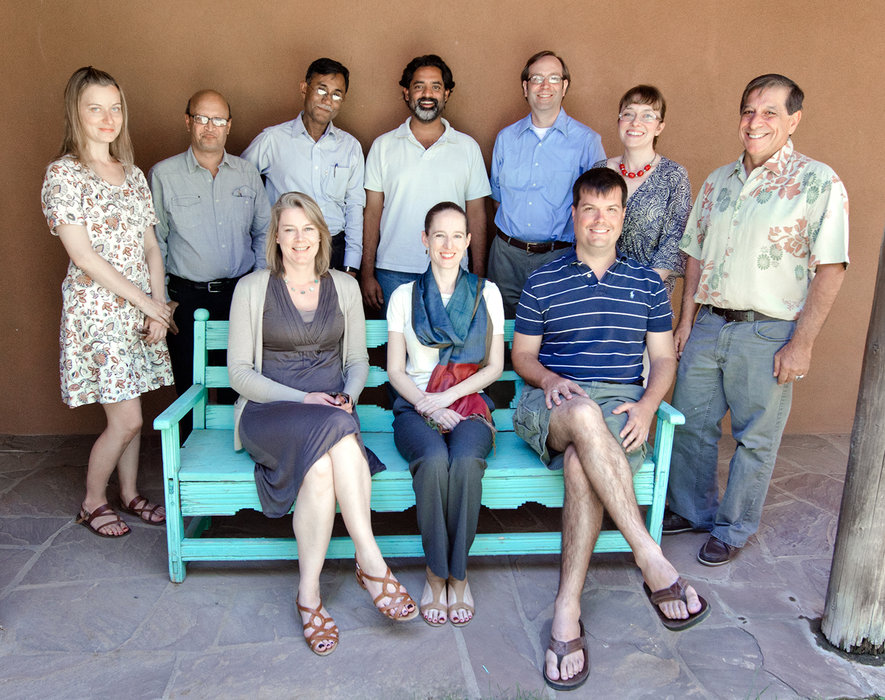
The Evolutionary Demography of Fertility: The Influence of Social Networks
Co-Chaired by Daniel Hruschka, Rebecca Sear, and Mary Shenk
June 19–20, 2012
The Evolutionary Demography of Fertility: The Influence of Social Networks
This seminar brought together an international team of researchers to develop a project and to plan related grant proposals on the use of evolutionary demography to investigate the effects of individual characteristics and social influences on fertility. Social networks may influence fertility in several ways: by actively promoting or discouraging childbearing, providing practical support for childbearing, and spreading ideals of acceptable levels of fertility or practical knowledge about how to limit fertility. Few attempts have been made to test hypotheses about these alternative mechanisms or to combine such analyses of social influence with the existing understanding of the effects of individual social and economic characteristics on fertility decisions.
During the seminar, a group of evolutionary behavioral scientists with a range of expertise in anthropology, psychology, and demography worked together to develop a cross-cultural and interdisciplinary project involving work in the United Kingdom, the United States, Bangladesh, Ethiopia, Bolivia, and perhaps other countries. This project aimed to examine individual and social network influences on fertility in several ways: (1) empirical analysis of existing demographic data to explore social influences on fertility, (2) collection of new social network data amenable to analysis using formal social network methodologies, (3) mathematical modeling and simulation to explore the potential dynamics of social influences and their interactions with individual and ecological characteristics, and (4) psychological experiments to explore the individual cognition of fertility decision making and the susceptibility of individuals to different forms of social influence.
Publications from the group are as follows (as of December 2015):
In preparation. Shenk, Mary, David Lawson, Rebecca Sear. “Why Does Fertility Decline? Evolutionary Demography as a Unifying Paradigm for Understanding the Demographic Transition. To be submitted to Behavioural and Brain Sciences.
In press. Lawson, David, Mary Shenk, Rebecca Sear, Hillard Kaplan, and Stephen Stearns (Eds.). Special issue titled “Understanding Variation in Human Fertility: What Can We Learn From Evolutionary Demography.” In Philosophical Transactions of the Royal Society of London, Series B. (Sixteen articles, most of which originate from the SAR seminar).
2015. Sear, Rebecca. “Evolutionary Contributions to the Study of Human Fertility.” Population Studies, 69:s39-s55.
Daniel Hruschka, Chair
Assistant Professor, School of Human Evolution and Social Change, Arizona State University
Rebecca Sear, Chair
Reader, Department of Anthropology, Durham University, UK
Mary Shenk, Chair
Assistant Professor, Department of Anthropology, University of Missouri, Columbia
Nurul Alam
Field Research Supervisor, Health and Demographic Surveillance Unit – Dhaka, Bangladesh
Mhairi Gibson
Senior Lecturer, Department of Archaeology and Anthropology, University of Bristol, UK
Hillard Kaplan
Professor, Department of Anthropology, University of New Mexico
David Nolin
Visiting Professor, Department of Anthropology, University of California, Davis
Karthik Panchanathan
Visiting Assistant Professor, Department of Anthropology, Pomona College
Anisur Rahman
Public Health Physician, Health and Demographic Surveillance Unit, Dhaka, Bangladesh
Isabel Scott
Lecturer in Psychology, Brunel University, United Kingdom
Generous funding provided by the National Science Foundation
